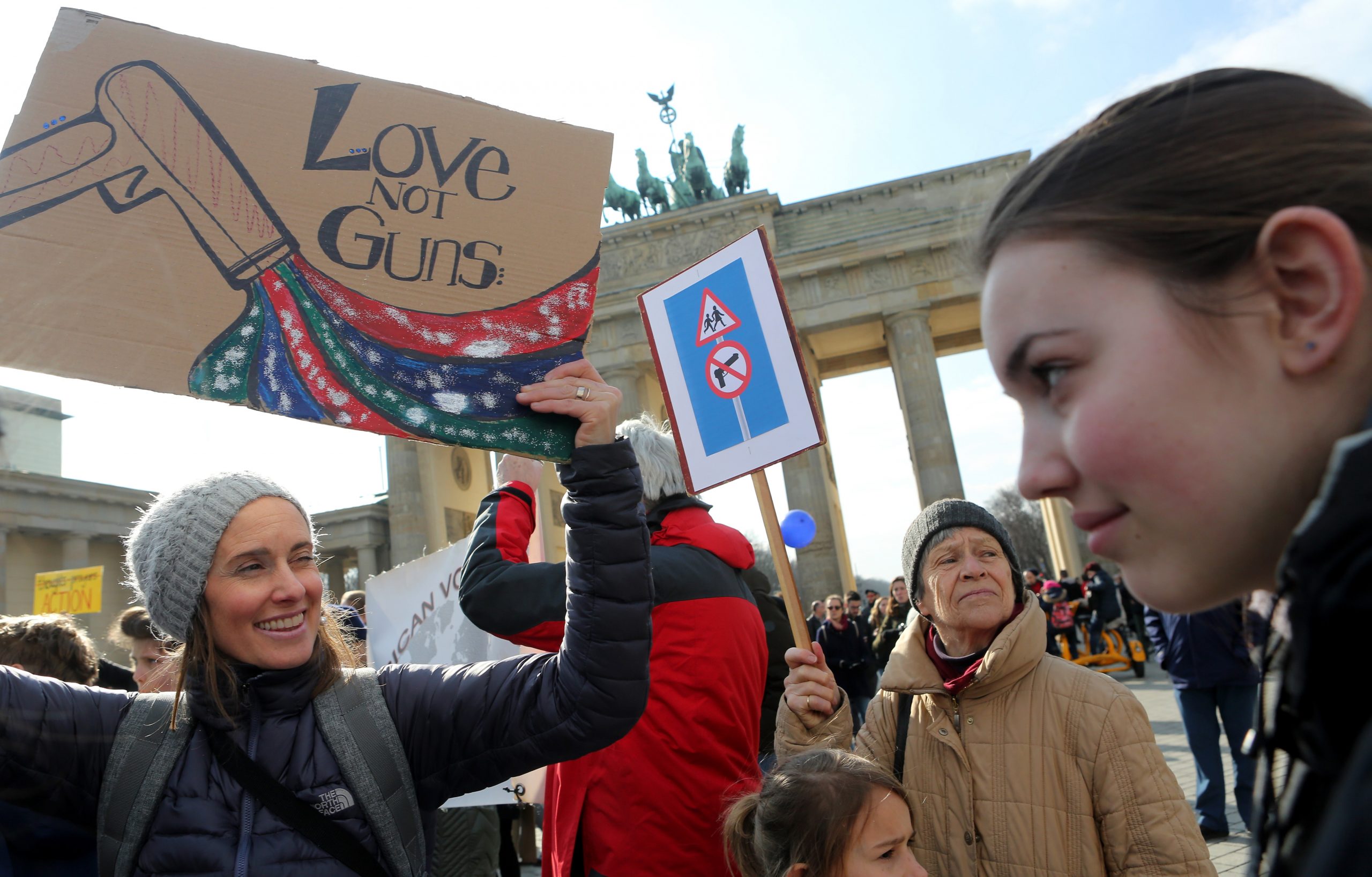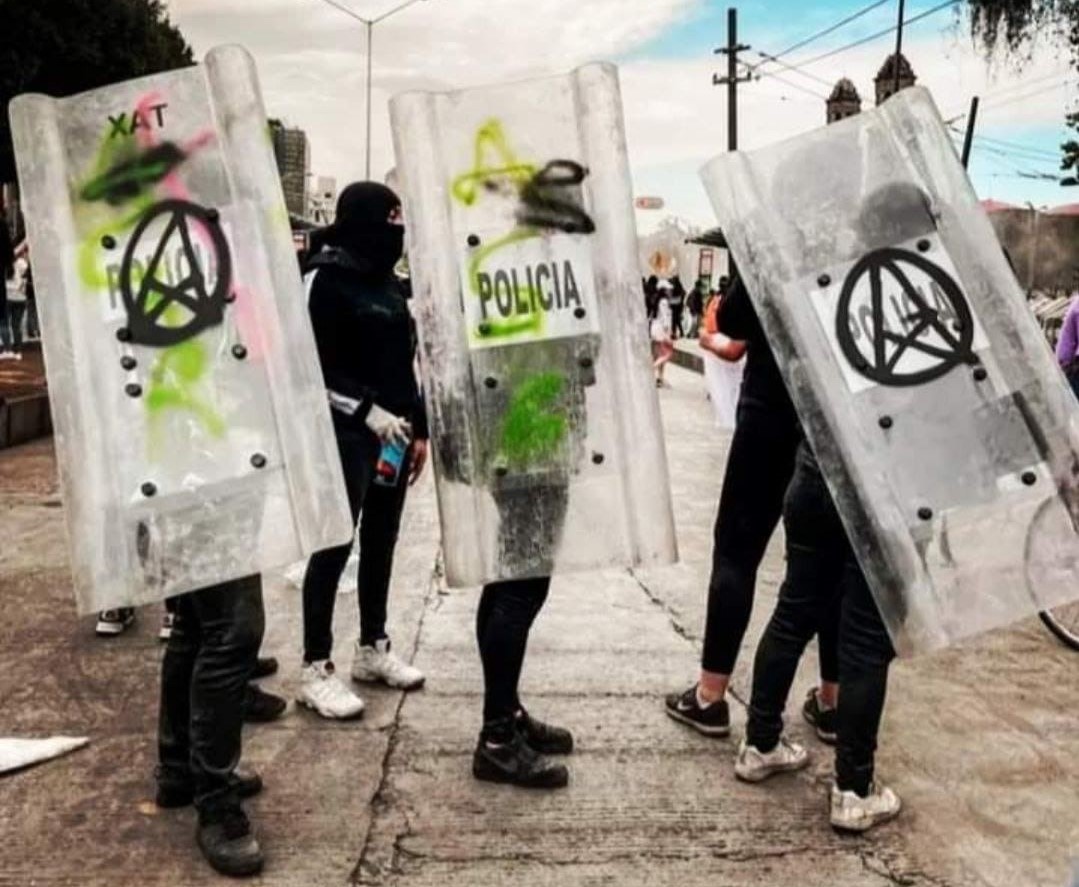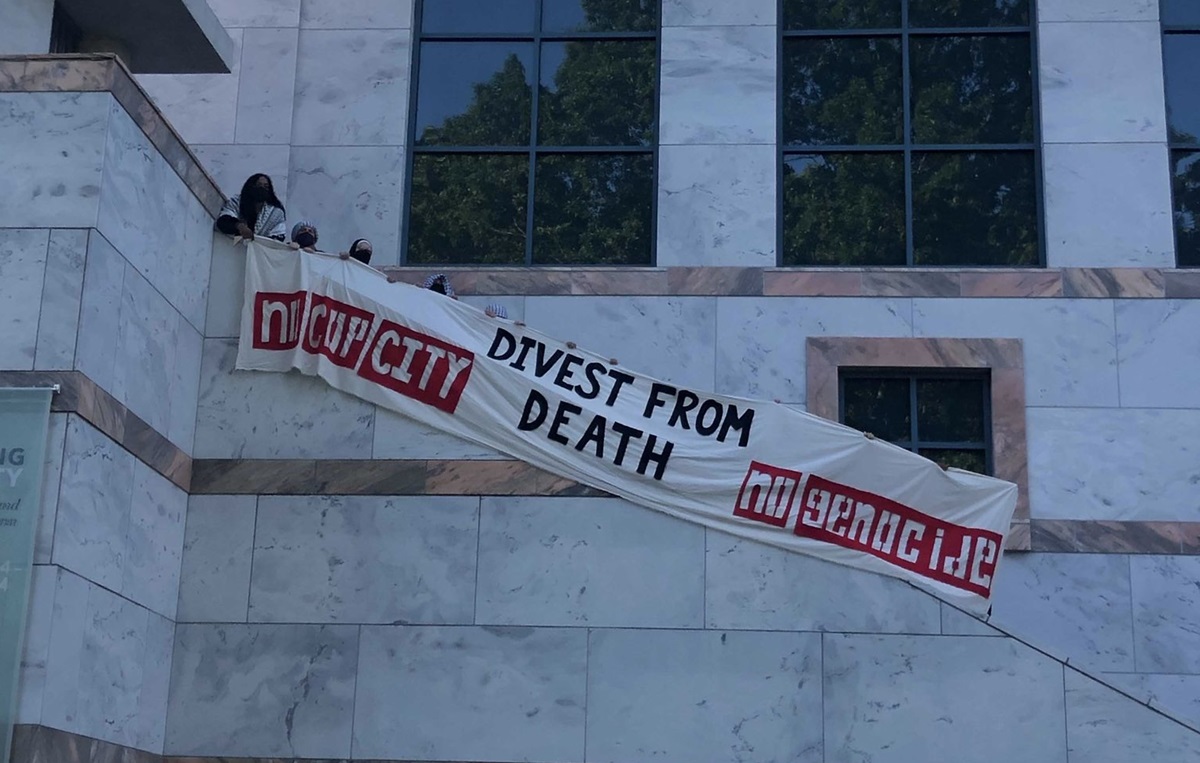Filed under: Critique, The State, US

How can a class perspective help shed light on the ongoing debate over gun control? A columnist at LibCom.org explores this question. To listen to a It’s Going Down podcast discussion on March For Our Lives, go here.
From right-wing politicians dismissing the survivors of the Parkland massacre to late night talk show hosts taking aim at the NRA, gun control has dominated the headlines and become the focus of national discourse.
The debate has quite naturally spilled over into more radical spaces, with It’s Going Down and libcom.org hosting front-page articles on the topic.
While both of the linked pieces oppose gun control, there’s been no shortage of other voices who are quick to point out that the working class in America suffers from gun violence at a level unmatched in any other developed industrial country. Surely, this must have something to do with the American state’s lax attitude toward gun ownership.
I tend to agree with whichever argument I hear last: I hear someone from Redneck Revolt and suddenly I want to join a left-wing gun club. Then I hear a critique of that strain of radical pro-gun argumentation and I think maybe that is fetishizing gun ownership. We’ll never out-gun the state anyway, so gun control is worth it to save proletarian lives.
I haven’t come to a conclusion one way or the other, but I do think a class-based approach would engender a very different ideological framework than that coming from media and at least some sections of the student movement itself.
I don’t think I’m offering anything particularly new, but I do think it’s worth attempting to anchor the debate in a class politic, not only to fend off any creeping liberalism but because #marchforourlives is part of a developing process of politicization of a new generation. We should offer these young people a more radical perspective than they’ll ever find in the Democratic party or on cable news.
To my mind, such an approach has four key elements:
1) Recognize the racist history of gun control legislation
The classic example here is that of Ronald Reagan who, while he was governor of California, supported a law to curtail gun ownership in specific response to the rise of the Black Panthers and their advocacy of armed community self-defense. The conservative, second amendment-loving, white establishment – including the NRA, which supported the California law – has no problem with gun control if the intent is to keep guns out of the hands of black people.
There’s every reason to believe that any new gun control measures will be enforced in a similarly racist way. They will be used as an excuse to come into communities of color, to hand out harsher sentences to individuals of color, and to come after revolutionaries of color should such a movement take hold at any point in the future.
To view the debate though this particular lens – even if one still supports gun control measures – takes its out of a narrow legislative focus and, instead, inserts it into a wider social framework. Race and class are obviously front and center, but it taps into wider issues of the relationship between poverty and crime, the role of the police as agents of social control, and what militant community self-organization looks like.
2) The linking up of social movements
From Black Lives Matter to the Women’s March to statewide wildcat teachers’ strikes, the Trump era has, arguably, seen the biggest increase in social movement activism in generations. Any response to the problem of gun violence must be tied into these wider movements.
It’s through seeing the connections between these supposedly disparate bits of our lives – school, work, policing – that we can begin to understand the wider social forces at work. This begins to break down the divisions of race and gender and worker/consumer and allows us tackle the problems of society in a more radical way; one that looks at root causes and can point towards more fundamental solutions to the problems we face.
3) A demand to disarm the police (and, ultimately, dismantle both the police and the military)
The police function to maintain the existing structure of society. It’s no surprise, then, that working class people, poor folks, and people of color are far more likely to be victims of police violence. It’s also no surprise that police forces are a bastion of reaction, a bubbling cauldron of personal bigotry and institutionalized prejudice.
A safe society is one where want and hunger don’t hang over the heads of a huge section of the population. Arming cops does nothing to stop or prevent crime, but it does increase the violent potential of an institution that exists specifically to protect the interests of the few at the expense of the many.
4) A demand to repurpose gun factories
Guns are a business and there are whole set of individuals who have a vested interest in their continued production.
I couldn’t care less about the execs at Smith and Wesson or the leadership of the NRA, but we shouldn’t frame the debate in a such a way that fails to draw a distinction between the gun industry itself and the workers it employs.
A demand to turn socially destructive industries over to socially useful production is not without precedent. The most instructive example is the Lucas Plan. In 1976, workers at the UK arms manufacturer Lucas Aerospace were facing job cuts. In response – and in conjunction with a program of industrial action – a group of workers and radical shop stewards put forward a plan to turn production over to socially useful purposes, saving jobs in the process.
This needs to be the model for dealing with a whole host of industries in the US and it needs to come from within and without the industries themselves. We can begin by demanding that gun factories be turned over to some type of socially useful production – solar panels or public transport vehicles or whatever.
It’s time to assert our needs and our desires over those of capital and, in the process, wrest some small degree of control over the productive resources of society.
Finally, we need to have an analysis of #marchforourlives. It must be one which allows us to engage with the movement and hopefully draw out its more radical potential.
Seeing students take to the streets as a default response to the problems they face is a good thing. I think it’s fair to say, however, that much of the rhetoric coming from these protests fails to make a break with the dominant liberal discourse on gun control. We should recognize that, but we must also recognize that action and content rarely progress in tandem.
The politics of individuals develop; the politics of movements and even entire generations develop. We can offer a critique, but we should nurture a response that sees taking to the streets as an integral part of responding to social problems. And we can do so as critical participants in wider activist networks – as much as it pains me to use the word. We need to do our part to ensure the movement isn’t disarmed by being absorbed into the Democratic Party, its NGOs, and the dead-end of liberal activism.




